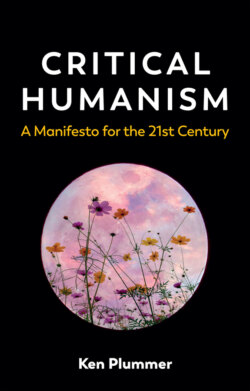Читать книгу Critical Humanism - Ken Plummer - Страница 28
Humanism as dignity
ОглавлениеClosely intertwined with ideas of rights are ideas of equality and dignity. Dignity has featured in discussions of humanity over the centuries. Most religions and discussions of ‘human nature’ will at some point raise the issue of human dignity. Closely linked to ideas of honour, dignity involves the right of all people to be equally recognized, respected and given worth as human beings. It is a claim that can be found in Cicero; it is developed in much religious writing; it gets its humanist flourishing from the 24-year-old Pico della Mirandola in his Oration on the Dignity of Man (1486); it is central to Kant’s belief in human agency; and, as we have seen, it has been embedded in most of the fundamental human rights documents since the 1940s: ‘All human beings are born free and equal in dignity and rights.’ Versions of dignity can be found across cultures, originating as a term for those with elevated status from China to Persia, who required respectful treatment, but trickling down from this bourgeois use to the masses.
That said, the idea has many critics. Schopenhauer once called it ‘the shibboleth of all perplexed and empty-headed moralists’, and Nietzsche dismissed it rapidly. These days, it is seen as a relic of essentialist thinking – giving the human a kind of essence. It has gone out of fashion in much thinking, and at its very best is seen as (yet another) contested concept.
Still, we should not be too dismissive too quickly. Dignity shows signs of widespread use today and is undoubtedly central to much thinking about justice and rights. It is also bound up with the value of a human self. It suggests that each individual has the right to be valued and treated well, including the idea of equality of peoples. People are vulnerable and need security from others; they need to be valued. That said, they are often failed by society, in which systems of rank, privilege and status are created that devalue vast swathes of people. Life becomes a struggle for honour and esteem.53 So, as we will see in detail later, the very term ‘dignity’ can also be used divisively: to carve out the dignified and non-dignified, doing terrible things in the process.
Two contemporary thinkers are worth noting here: Christian Smith and Martha C. Nussbaum. Realist sociologist Christian Smith writes from a position often called personalism, claiming that the person and their agency form the prime locus of human studies. He is worth quoting, as he represents one major contemporary stance:
Dignity inheres in the emergent constitution of human personhood … It is inalienable. It cannot be thought or wished away … [It is] an inherent worth of immeasurable value that is deserving of certain morally appropriate responses. Dignity makes persons innately precious and inviolable … The ontology of personhood makes it morally true that persons are creatures worthy of being treated with respect, justice, and love.54
This is an unusually strong stance. Smith puts dignity at the very heart of his scientific account of what it means to be human. For him, the idea cannot be contested: he takes a strong essentialist line.
Likewise, philosopher Martha C. Nussbaum – indisputably one of the most prolific and central philosophers of humanity55 – weaves her many wide-ranging and influential discussions around the connectedness of human capabilities, human rights, cosmopolitanism and dignity. She does not use the language of essentialism, but it is clear she accords major worth to the idea of human dignity. At the very least, all this means that the idea of dignity should at least be a part of the vocabulary of a critical humanism.
